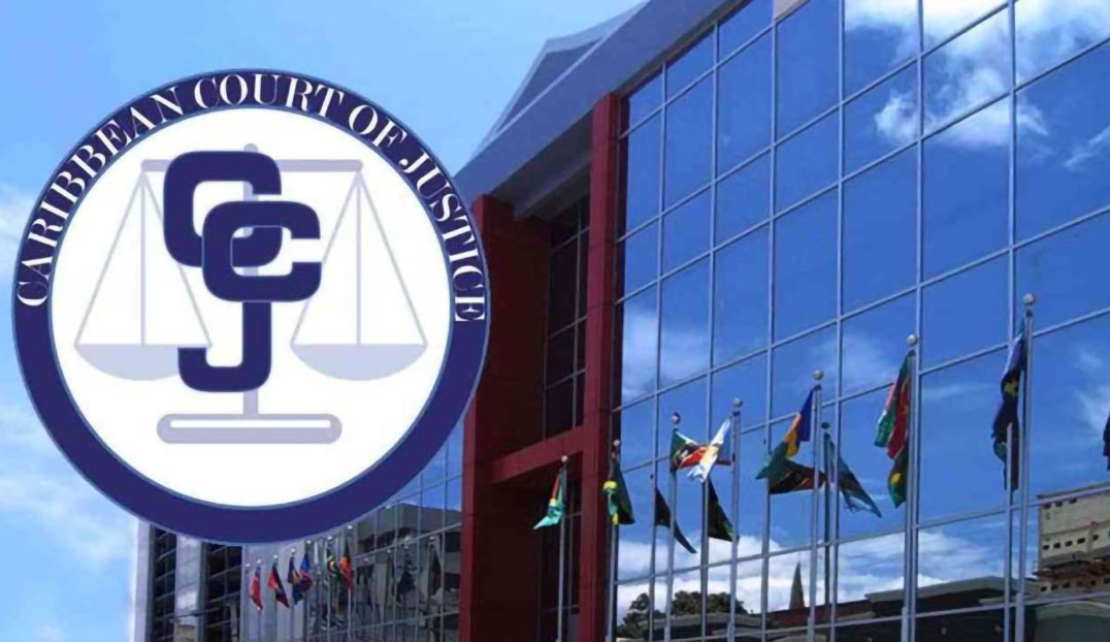CARICOM | CCJ Accepted into the International Consortium for Court Excellence

PORT- OF-SPAIN, Trinidad and Tobago, February 15, 2022 - The Caribbean Court of Justice (CCJ) has become the first court in the region to be accepted into the prestigious International Consortium for Court Excellence (ICCE). The ICCE is an international network of courts and other organisations with expertise in court and judicial administration, dedicated to ensuring high-quality service delivery.

To be accepted into the ICCE, organisations must demonstrate a commitment to excellence using an International Framework for Court Excellence (IFCE), a quality management system designed to help courts consistently improve their performance in seven core areas.
These include courtmanagement and leadership, court policies, court proceedings, public trust and confidence, user satisfaction, court resources and affordable and accessible court services.
The IFCE was first introduced to the Court by its former CCJ President, the Rt. Hon. Sir Dennis Byron in 2016. Following an objective self-assessment undertaken by the Court, several projects were subsequently initiated to address limitations identified from the assessment.

Together with the Court’s strategic plan, the Framework has become a major influence on all Court projects and organisational processes.
Some of these initiatives include the implementation of an online e-Filing system which now allows individuals to file documents at the Court electronically, reducing the cost and time spent on filing; The implementation of a Human Resources Information System that has improved the organisation’s ability to effectively collect and store employee information; The linking of the Court’s strategic agenda to its Excellence Framework with the creation of monitoring and evaluation processes and the introduction of Enterprise Risk Management to help the Court identify and manage risks. These initiatives have helped to transform the way the Court currently operates.
In thanking employees for their contribution in achieving this honour, President Saunders, noted that the journey does not stop here. He remarked “while we can proudly state that we are living our strategic vision of being a model of judicial excellence, excellence is not a static achievement. It is a non-stop cycle that requires continuous improvement.”
He also pledged that the Court will “continue to serve the region to the best of our ability; fulfilling our mission of providing accessible, fair and efficient justice for the people and states of the Caribbean Community.”

The CCJ has an Original and an Appellate Jurisdiction and is effectively, therefore, two courts in one.
In its Original Jurisdiction, it is an international court with exclusive jurisdiction to interpret and apply the rules set out in the Revised Treaty of Chaguaramas (RTC) and to decide disputes arising under it. The RTC established the Caribbean Community (CARICOM) and the CARICOM Single Market and Economy (CSME).
In its Original Jurisdiction, the CCJ is critical to the CSME and all 12 Member States which belong to the CSME (including their citizens, businesses, and governments) can access the Court’s Original Jurisdiction to protect their rights under the RTC.
In its Appellate Jurisdiction, the CCJ is the final court of appeal for criminal and civil matters for those countries in the Caribbean that alter their national Constitutions to enable the CCJ to perform that role.
At present, four states access the Court in its Appellate Jurisdiction, these being Barbados, Belize, Dominica and Guyana. However, by signing and ratifying the Agreement Establishing the Caribbean Court of Justice, Member States of the Community have demonstrated a commitment to making the CCJ their final court of appeal. The Court is the realisation of a vision of our ancestors, an expression of
independence and a signal of the region’s coming of age.
To learn more about the ways in which the Court is transforming its services to better serve the
region, the public is encouraged to visit www.ccj.org.
